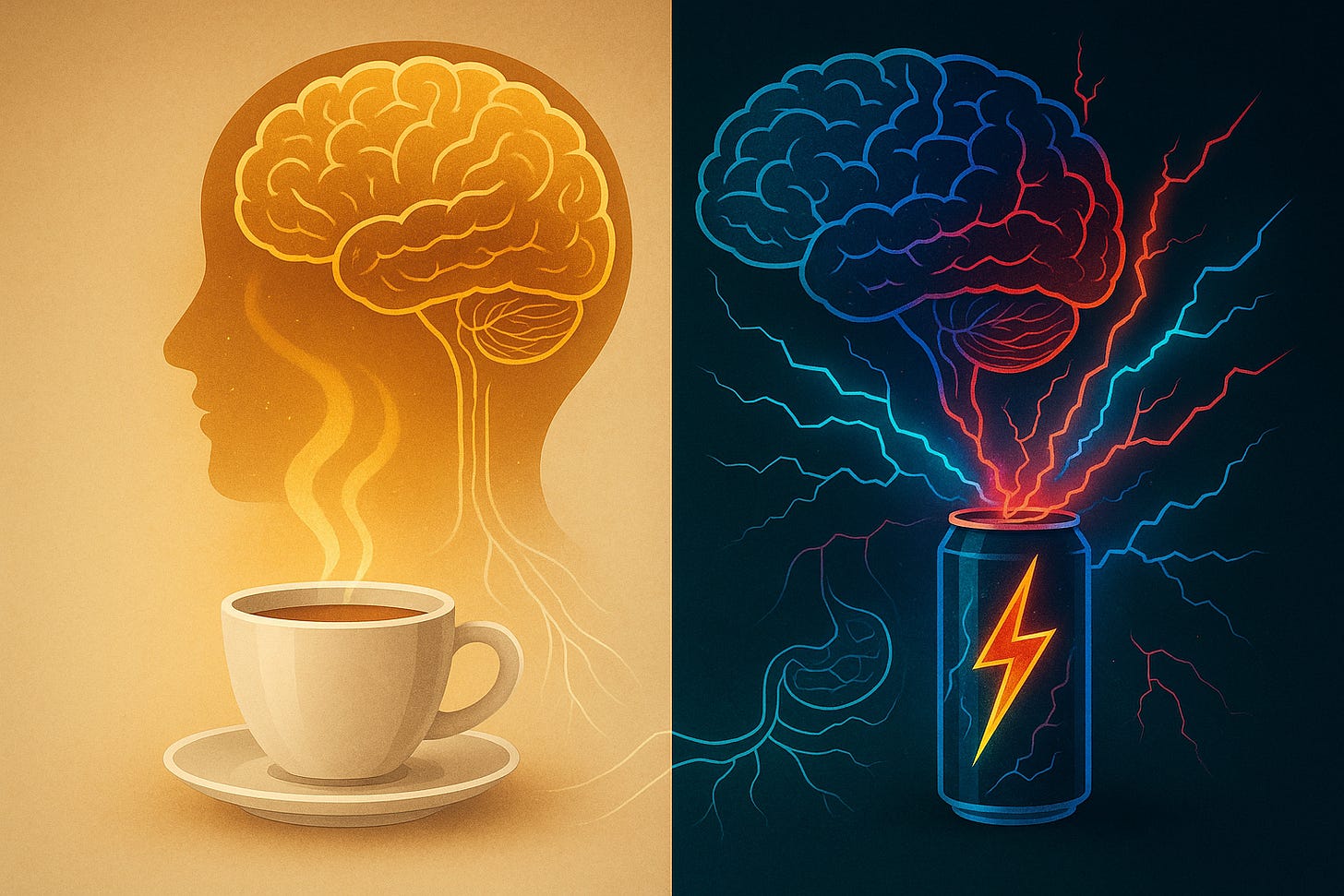Energy Drinks and Suicide Risk Coffee Shows Protective Effect
A large meta-analysis reveals coffee may lower suicide risk, while energy drink consumption may significantly raise it
A meta-analysis of over 1.5 million people suggests that coffee and energy drinks have opposite effects on suicide risk. Coffee consumption of more than 60 cups per month was linked with reduced suicide attempts, while even a single can of an energy drink per month was associated with higher risk, with the danger increasing alongside greater intake.
Stud…
Keep reading with a 7-day free trial
Subscribe to Just Healthcare to keep reading this post and get 7 days of free access to the full post archives.


